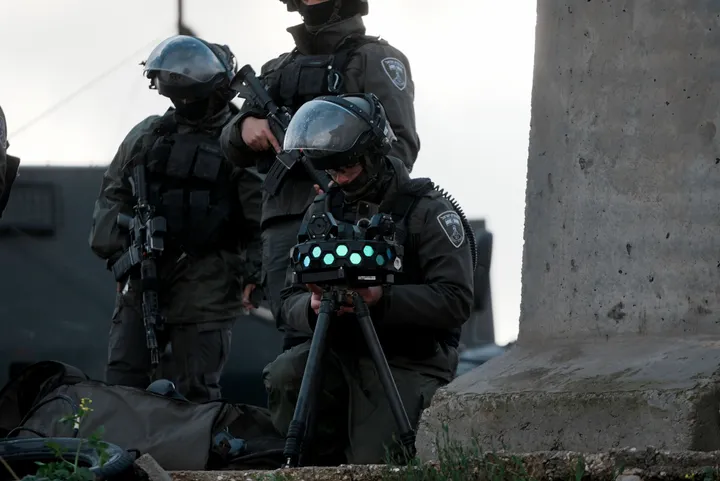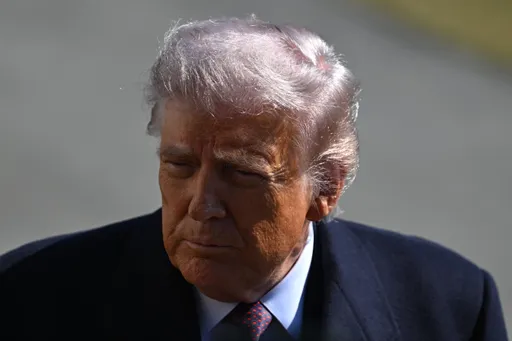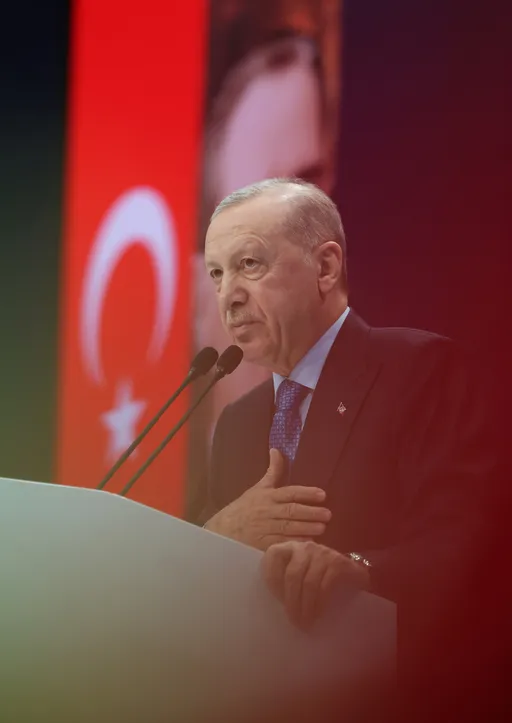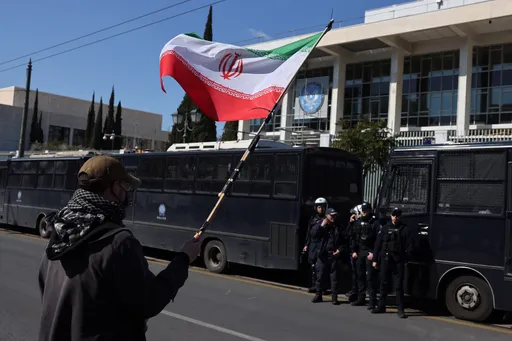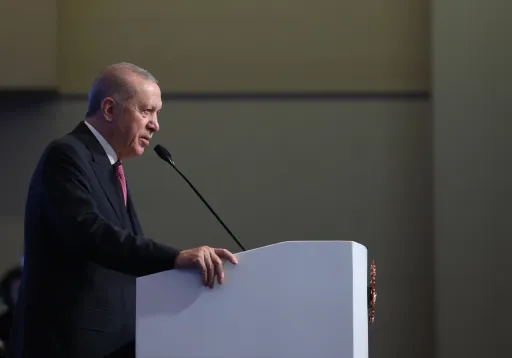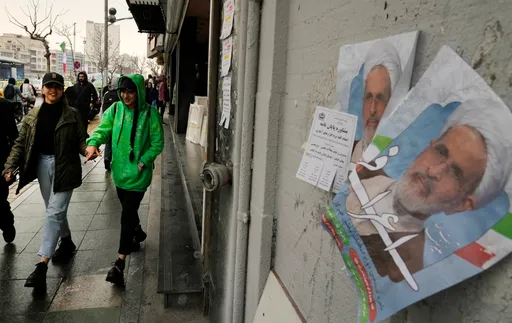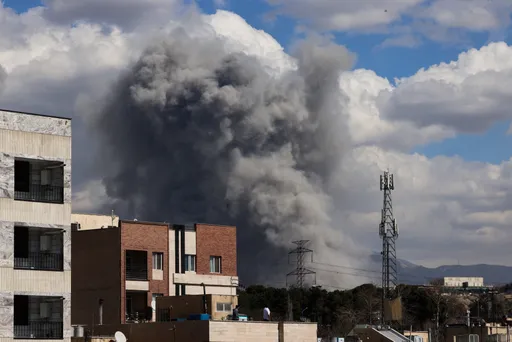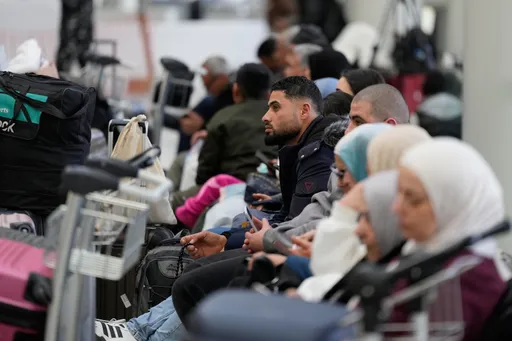The United Nations Relief and Works Agency for Palestine Refugees in the Near East (UNRWA) provides what many see as a critical lifeline to around two million Palestinians in Gaza.
But this lifeline has come under threat after Israeli allegation that 12 workers at the agency were involved in Hamas’s incursion into Israel on October 7.
More than 26,000 Palestinians - most of them women and children – have been killed amid Israel's onslaught, described as a collective punishment of Palestinians.
The United States was the first Western country to suspend funding, with the country being the biggest donor to the organisation with $340 million in 2022. Other Western nations such as the UK, Canada, Australia, Germany, Italy, the Netherlands, Switzerland and Finland also suspended aid while in 2022, they provided nearly 60% of the agency's budget.
It has received strong pushback from many who feel it will negatively impact the lives of Palestinians.
UNRWA Commissioner-General Philippe Lazzarini called for a comprehensive review of the agency to determine the facts and "what is politically motivated" and later said that "Our humanitarian operation, on which 2 million people depend as a lifeline in Gaza, is collapsing."
At least 85 percent of Gaza's population is displaced amid acute shortages of food, potable water, and medicine, while over half of the enclave's infrastructure has been damaged or destroyed.
The former executive director of Human Rights Watch, Kenneth Roth, underscored how "military aid to Israel continues despite its war crimes and plausible genocide".
Francesca Albanese, a lawyer and the UN's Special Rapporteur, called the move "utterly irresponsible and immoral."
For years, critics have insisted that the Israel lobby has pushed to close down UNRWA, widely regarded as the sole UN agency to hold a specific mandate to care for the basic needs of Palestinian refugees.
How UNRWA works
Today, UNRWA is the primary humanitarian agency in Gaza for more than two million people depending on its services.
Overall, UNRWA provides various services, including vital education, health care, relief and social services, camp infrastructure and improvement, Microfinance and emergency assistance.
The agency runs over 180 schools for over 290,000 students and health centres in Gaza, providing critical services, with many struck by Israeli air strikes.
Amid the dire conditions in Gaza, Commissioner-General Philip Lazzarini said, "many are hungry as the clock is ticking towards a looming famine."
The agency runs shelters for over one million people and provides food and primary healthcare services.
Lazzarini has urged the nations suspending their funding to "re-consider" before he says the organisation is "forced to suspend its humanitarian response."
"The lives of people in Gaza depend on this support, and so does regional stability," said Lazzarini.
History of UNRWA
In 1948, Zionist militias forcibly displaced some 750,000 Palestinians and killed 15,000 Palestinians to establish the State of Israel. The violent incursion became known as the Nakba or catastrophe.
In the aftermath, UNRWA was set up by the United Nations General Assembly Resolution 302 (IV) of December 8 1949, to provide direct relief and programmes for Palestine refugees.
On May 1, 1950, the agency began its operations and sought to respond to the different needs of Palestinian refugees.
Over its history, the agency bolstered its commitment to refugees and their "welfare" and "human development" of what it says are four generations of Palestine refugees "who lost both home and means of livelihood as a result of the 1948 War."
Today, it says almost six million Palestinians are eligible for its services. At the same time, its footprint extends to the occupied West Bank, East Jerusalem and beyond to neighbouring countries of Syria and Lebanon -as Palestinian families sought refuge after the Nakba.
Since the Nakba, Israel has denied the right of Palestinians to return to their home since their forced explosion, despite its membership at the UN being conditional on the right of Palestinian refugees to return to their homes and lands.
Amid the bid to bring about a solution to the lives of Palestinian refugees, the United Nations General Assembly has continued to renew the agency's mandate.
According to their remit, the descendants of Palestine refugee males, including legally adopted children, are also deemed eligible to register.
Funding
The organisation is funded "almost entirely by voluntary contributions from UN member states," receiving some funding from the regular budget of the United Nations that covers staffing costs.
Between 2016 and 2021, the UNRWA's budget sought to bolster human development, with over half of the 2020 Programme Budget of US$ 806 million targeting education.
The organisation described it as a bid to ensure Palestinian children gain a "complete quality, equitable and inclusive basic education". At the same time, 15 per cent seek to safeguard refugees' health and diminish the prospect of disease.
Close to 90 percent of the agency's budget is funded by UN member nations, with many Western nations, including the US, Germany, the EU, Sweden and Norway, being its top five contributors.
Reportedly, the eight nations make up over $600 million of the UNRWA's yearly contributions, or over half of its projected annual budget of $1.1 billion.
At least 3,000 out of 13,000 of the agency's workers work in Gaza.
Over 150 UNRWA employees have been killed, the highest number of aid worker deaths the UN has suffered in a conflict.
International pushback to cuts
The United Nations Secretary-General, Antonio Guterres, insisted Palestinians are in desperate need and should not be penalised over allegations by a dozen staff. He said nine UNRWA staff had already been dismissed amid their alleged involvement on October 7.
"Meanwhile, 2 million civilians in Gaza depend on critical aid from UNRWA for daily survival, but UNRWA's current funding will not allow it to meet all requirements to support them in February," he said.
There has also been international pressure. Over the weekend, Türkiye's Foreign Ministry called upon countries cutting their funding to UNRWA to reconsider, underscoring the agency's vital role amid challenging conditions in Gaza.
Neighbouring Jordan called for continued support for the UN refugee agency. The Arab League issued a similar warning, noting that suspending UNRWA would have grave consequences, and that the campaign to liquidate the agency is not new.
Chris Doyle, Director of the Council for Arab-British Understanding, described the actions as "collectively punishing Palestinian refugees in Gaza and across the region, including the most vulnerable who are being bombed and starved to death in Gaza. Serious allegations were made against 12 UNRWA staff."
Jan Egeland, Secretary General of the Norwegian Refugee Council, described how "Donors do not starve children for the sins of a few individual aid workers."
Poet Romi Kanazi echoed the same trail of thought, insisting, "Let's be clear, the nations that cut off funding to UNRWA today are complicit in genocide. Not only that, they want the genocide to happen faster. They want the population of Gaza to starve to death. They want them to die of disease. They want them to perish into the sea."

